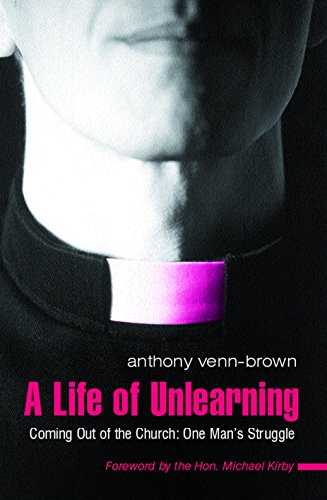Archive
Film | Theatre | Art | Opera | Music | Television | Festivals
Welcome to ABR Arts, home to some of Australia's best arts journalism. We review film, theatre, opera, music, television, art exhibitions – and more. To read ABR Arts articles in full, subscribe to ABR or take out an ABR Arts subscription. Both packages give full access to our arts reviews the moment they are published online and to our extensive arts archive.
Meanwhile, the ABR Arts e-newsletter, published every second Tuesday, will keep you up-to-date as to our recent arts reviews.
Recent reviews
A Life of Unlearning: Coming out of the church: One man's struggle by Anthony Venn-Brown
A Social History of France 1789-1914: Second Edition by Peter McPhee
An evening with J.M. Coetzee
ABR (in association with La Trobe University and the City of Melbourne) is delighted to be able to invite all our readers, but especially our subscribers, to what promises to be one of our major events for the year, when the masterly novelist and critic J.M. Coetzee will read from his work. This rare opportunity for Victorians to hear the Nobel Laureate and author of Disgrace and Life and Times of Michael K will take place at the Melbourne Town Hall at 6 p.m. on Wednesday, August 4 (we suggest you arrive at 5.30 to ensure you get a seat). Full details appear on page 5. This is a free event. La Trobe University will also confer the degree of Doctor of Letters (honoris causa) on J.M. Coetzee during his visit to Melbourne.
... (read more)Bud: A life by Charles 'Bud' Tingwell (with Peter Wilmoth)
Changes: New & collected poems 1962-2002 by Keith Harrison
Charmian and George: The marriage of George Johnson and Charmian Clift by Max Brown
For a timber of such beauty and usefulness, red cedar has had a somewhat perverse history. Recognised for its domestic potential in the first few years of European settlement in New South Wales, it wasn’t long before supplies were so depleted around Sydney that government attempted, unsuccessfully, to regulate its logging. By the end of the century, it was all but cut out of accessible land from Sydney to north Queensland, leaving in its wake large tracts of denuded rainforest and sometimes dislocated Aboriginal communities.
... (read more)During the summer, Fire Island Pines, a scrubby Atlantic-facing dunescape off the southern shore of Long Island, is entirely colonised by gay men from Manhattan. Little dogs, swelling pectorals, postcards of Prince William and other clichés abound. The only way to get there is by ferry. There are no roads, just paths, jetties and boardwalks. This alone makes it worth the trip. Yet Fire Island has a distinctly ‘science fiction’ aspect, as if a cruisy gay nightclub in outer space for curious aliens and time-travellers. Here, glamorous youth and leathery, wobbling-tummied capital are exquisitely interdependent. From about four o’clock in the afternoon until six or seven, at the quayside tea dance, hundreds of shirtless men writhe to ‘Let the Sunshine in’ and other camp classics. All shapes and sizes. You can’t help thinking of those nature documentaries where colourful water birds peck grubs and insects from behind the ear of some lumbering wildebeest. I am not sure where I fit into this eco-system. It does not seem particularly fragile.
... (read more)






